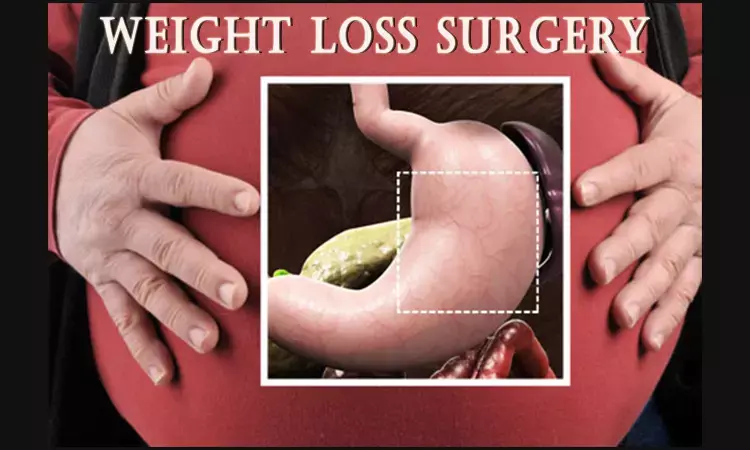- Home
- Medical news & Guidelines
- Anesthesiology
- Cardiology and CTVS
- Critical Care
- Dentistry
- Dermatology
- Diabetes and Endocrinology
- ENT
- Gastroenterology
- Medicine
- Nephrology
- Neurology
- Obstretics-Gynaecology
- Oncology
- Ophthalmology
- Orthopaedics
- Pediatrics-Neonatology
- Psychiatry
- Pulmonology
- Radiology
- Surgery
- Urology
- Laboratory Medicine
- Diet
- Nursing
- Paramedical
- Physiotherapy
- Health news
- Fact Check
- Bone Health Fact Check
- Brain Health Fact Check
- Cancer Related Fact Check
- Child Care Fact Check
- Dental and oral health fact check
- Diabetes and metabolic health fact check
- Diet and Nutrition Fact Check
- Eye and ENT Care Fact Check
- Fitness fact check
- Gut health fact check
- Heart health fact check
- Kidney health fact check
- Medical education fact check
- Men's health fact check
- Respiratory fact check
- Skin and hair care fact check
- Vaccine and Immunization fact check
- Women's health fact check
- AYUSH
- State News
- Andaman and Nicobar Islands
- Andhra Pradesh
- Arunachal Pradesh
- Assam
- Bihar
- Chandigarh
- Chattisgarh
- Dadra and Nagar Haveli
- Daman and Diu
- Delhi
- Goa
- Gujarat
- Haryana
- Himachal Pradesh
- Jammu & Kashmir
- Jharkhand
- Karnataka
- Kerala
- Ladakh
- Lakshadweep
- Madhya Pradesh
- Maharashtra
- Manipur
- Meghalaya
- Mizoram
- Nagaland
- Odisha
- Puducherry
- Punjab
- Rajasthan
- Sikkim
- Tamil Nadu
- Telangana
- Tripura
- Uttar Pradesh
- Uttrakhand
- West Bengal
- Medical Education
- Industry
Low fat Diet Key to Liver Health Following Weight-loss Surgery in women: Study

Rockville, Md.- Research suggests that women who have weight loss surgery need to reduce the amount of fat they eat after surgery to reap the full benefit of the procedure and protect their liver function. The study is published ahead of print in the American Journal of Physiology-Endocrinology and Metabolism.
More than 42% of adults living in the U.S. are considered obese and have a higher risk of developing chronic health conditions such as type 2 diabetes, heart disease or cancer. According to the American Society for Metabolic and Bariatric Surgery, an estimated 256,000 people in the U.S. had weight loss (bariatric) surgery in 2019. As many as 80% of these cases are women. Benefits of bariatric surgery—in addition to weight loss—include improved glucose tolerance and cholesterol levels, and better heart health overall. However, studies have found that men and women do not respond the same way to weight loss interventions. "There are indications that [biological] sex impacts the degree of weight loss and improvements in comorbidities," the researchers of a new study in mice wrote.
The researchers studied a mouse model of vertical sleeve gastrectomy, a form of weight loss surgery in which the stomach is reduced to about 15% of its original size. After the procedure, some of the mice remained on the high-fat diet they were fed before surgery, while others were placed on a lower-calorie diet. The research team found both male and female mice had better glucose tolerance and lost weight and body fat after surgery, even if they stayed on the high-fat diet. However, the males had a larger decrease in liver fat storage (hepatic triglycerides) than the females. The male mice saw improvements in hepatic triglycerides regardless of their diet, while only the females following a lower-calorie diet showed significant improvement. High levels of hepatic triglycerides are a marker of fatty liver disease, which affects up to one hundred million people in the U.S., according to the Fatty Liver Foundation. Fatty liver disease can lead to liver cancer and liver failure in some cases.
"These data suggest that maintaining females on a [high-fat diet] diminishes the impact of surgery on reducing hepatic triglycerides," the researchers wrote. The findings "highlight the importance of considering the additive impact of dietary intervention on surgical outcome" in light of the sex differences associated with weight loss surgery, explained Darleen Sandoval, PhD, of the University of Colorado-Anschutz Medical Campus, and corresponding author of the study.
https://journals.physiology.org/doi/abs/10.1152/ajpendo.00060.2021?utm_source=AJPEndo&utm_medium=PressRelease&utm_campaign=5.27.2021
Hina Zahid Joined Medical Dialogue in 2017 with a passion to work as a Reporter. She coordinates with various national and international journals and association and covers all the stories related to Medical guidelines, Medical Journals, rare medical surgeries as well as all the updates in the medical field. Email: editorial@medicaldialogues.in. Contact no. 011-43720751
Dr Kamal Kant Kohli-MBBS, DTCD- a chest specialist with more than 30 years of practice and a flair for writing clinical articles, Dr Kamal Kant Kohli joined Medical Dialogues as a Chief Editor of Medical News. Besides writing articles, as an editor, he proofreads and verifies all the medical content published on Medical Dialogues including those coming from journals, studies,medical conferences,guidelines etc. Email: drkohli@medicaldialogues.in. Contact no. 011-43720751


